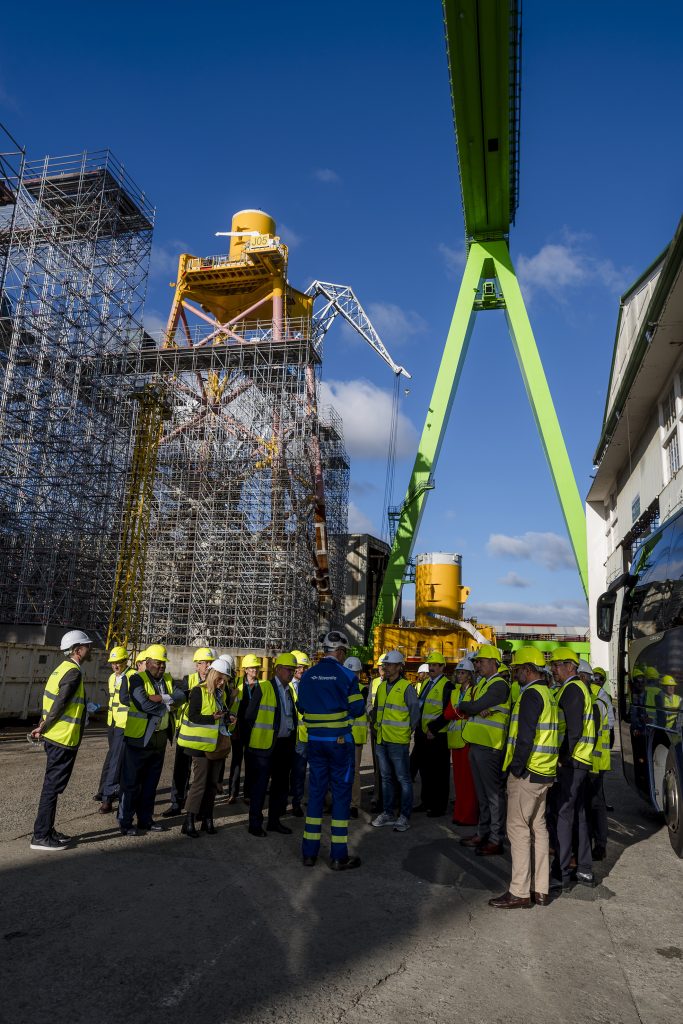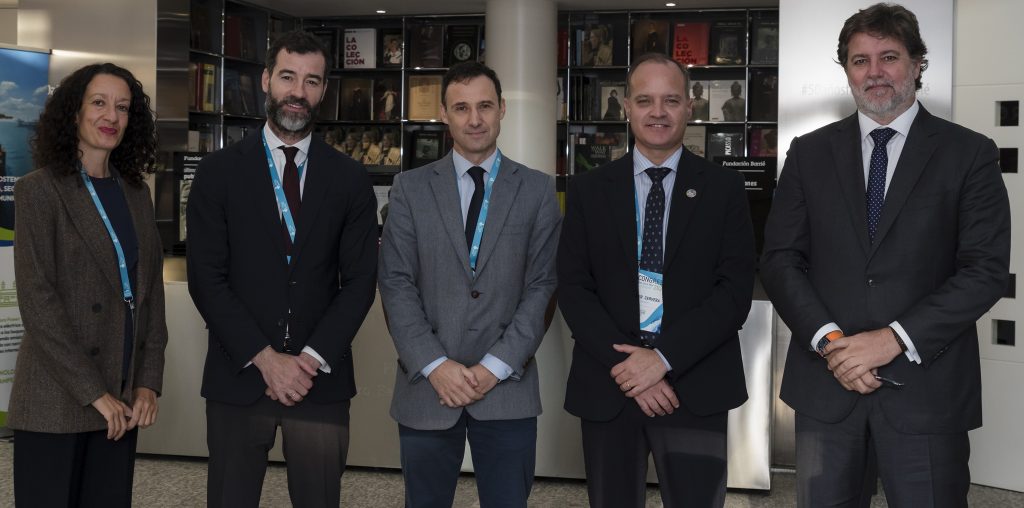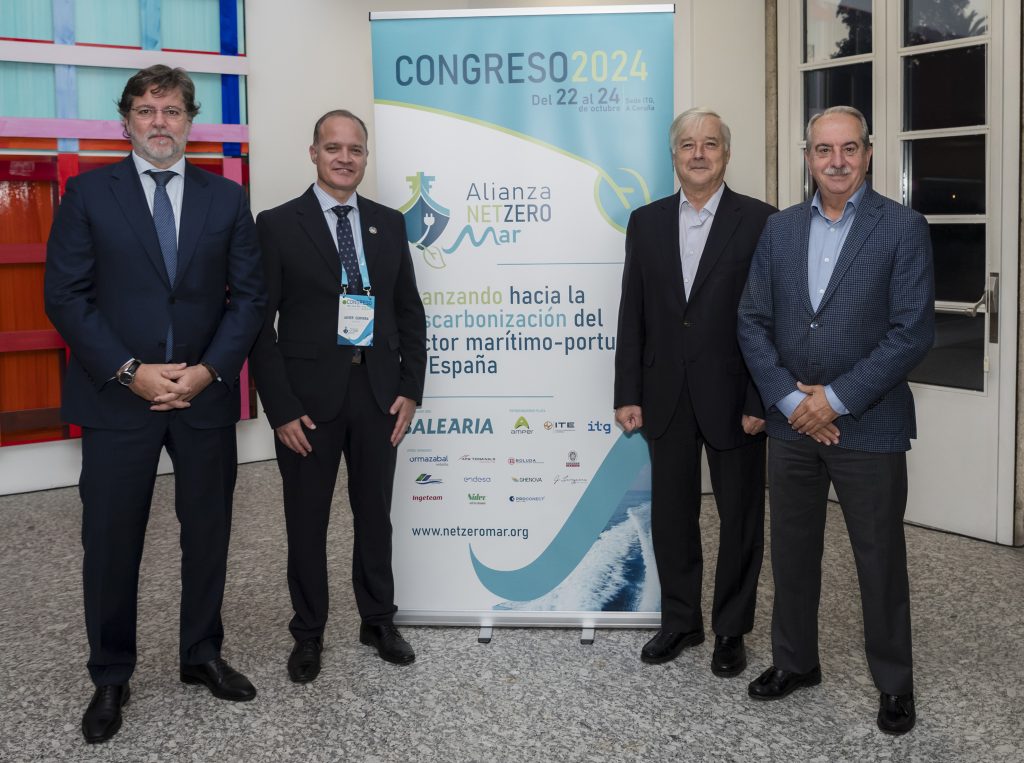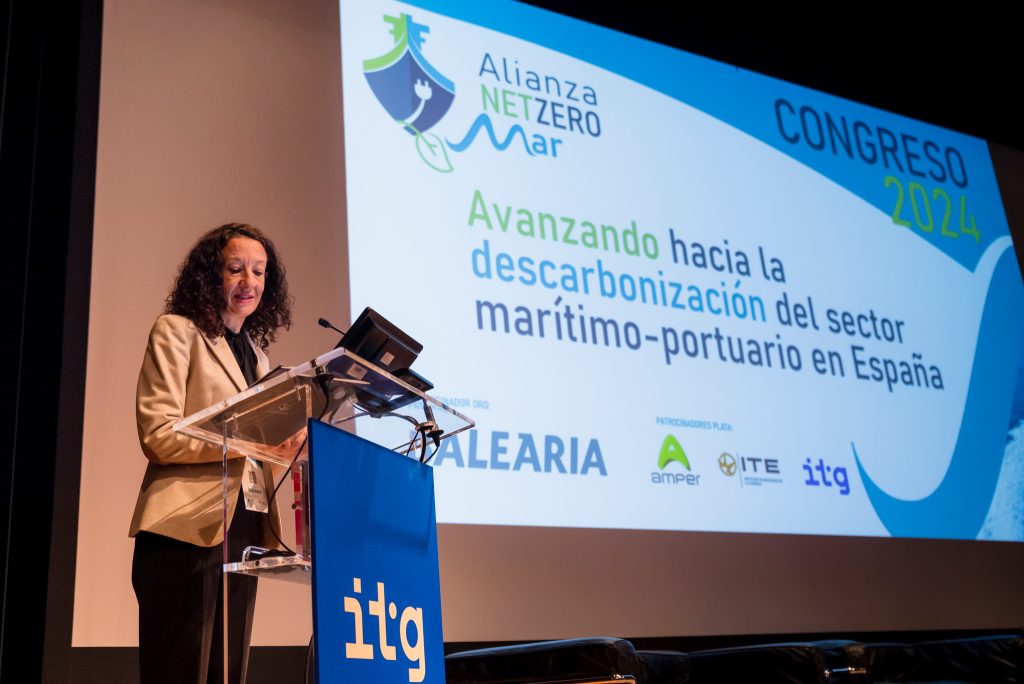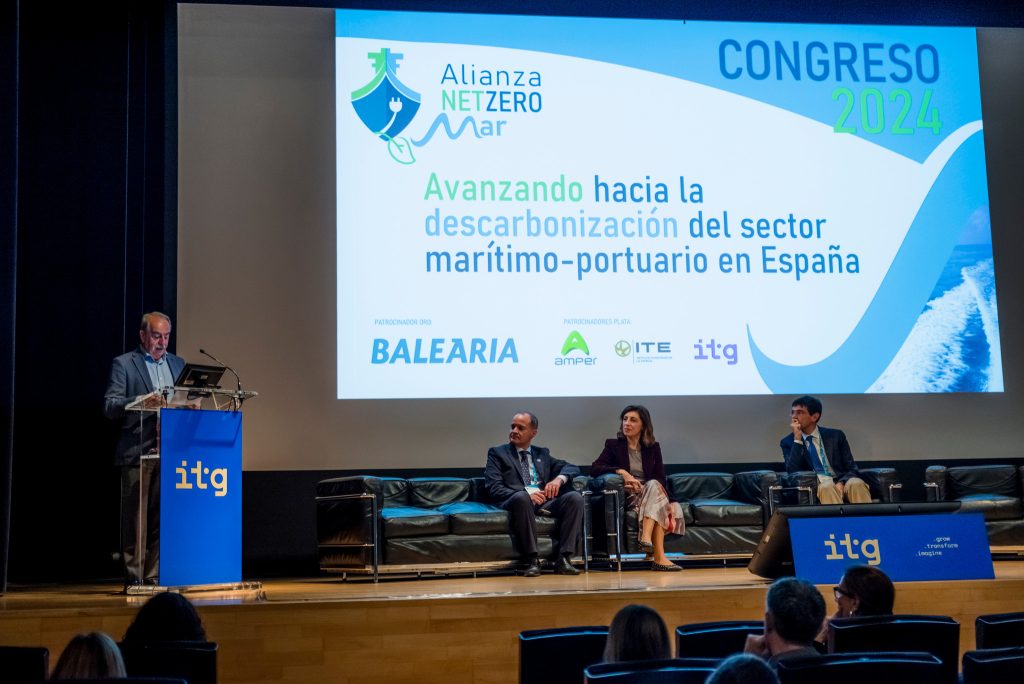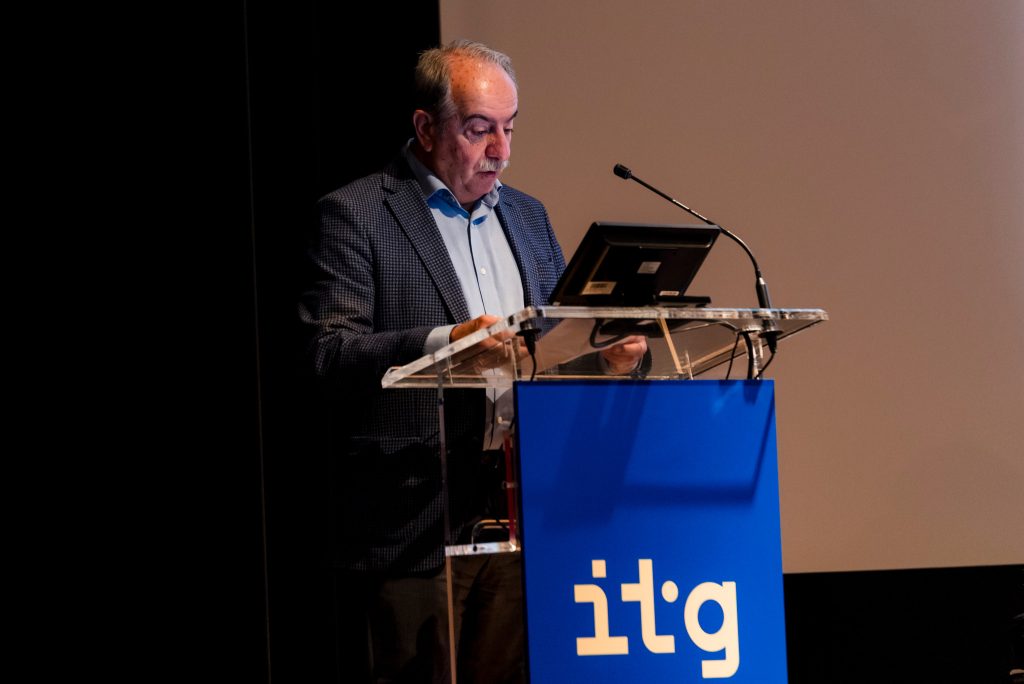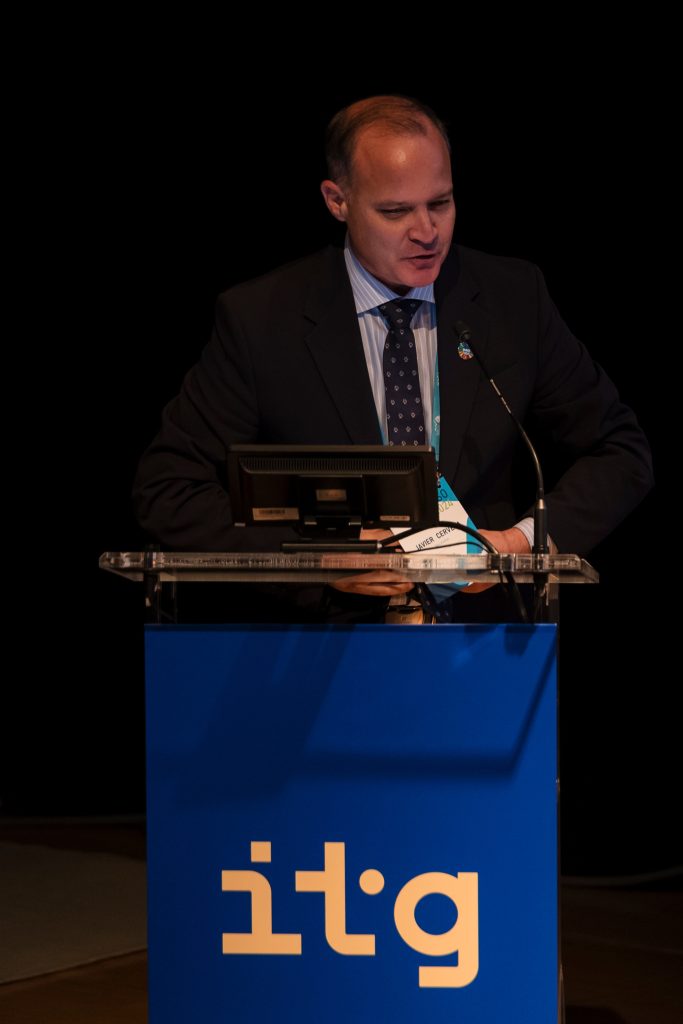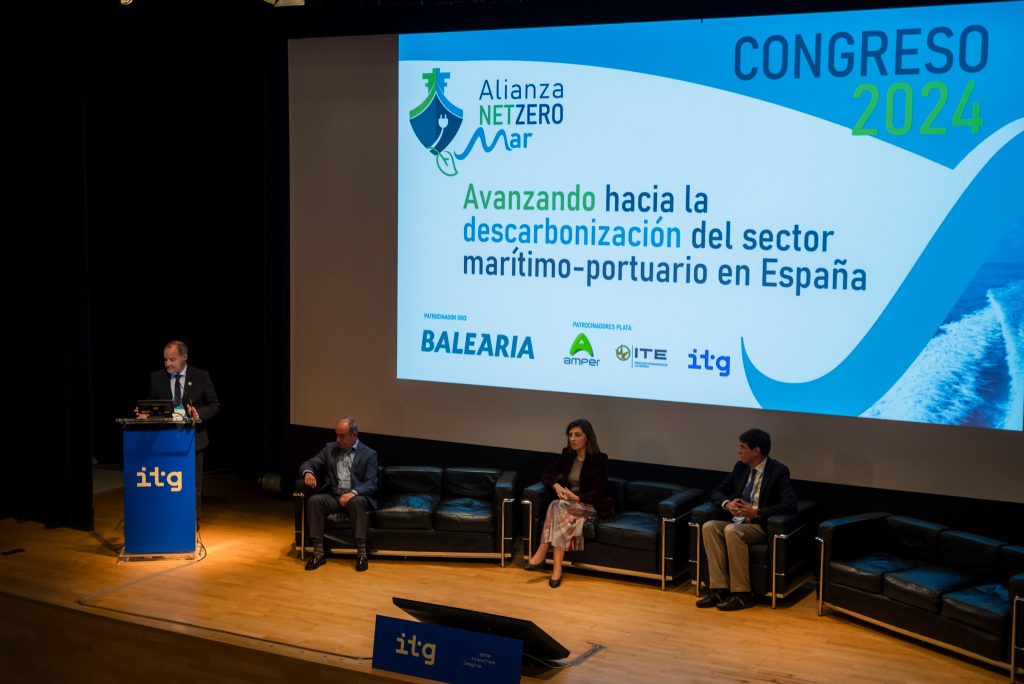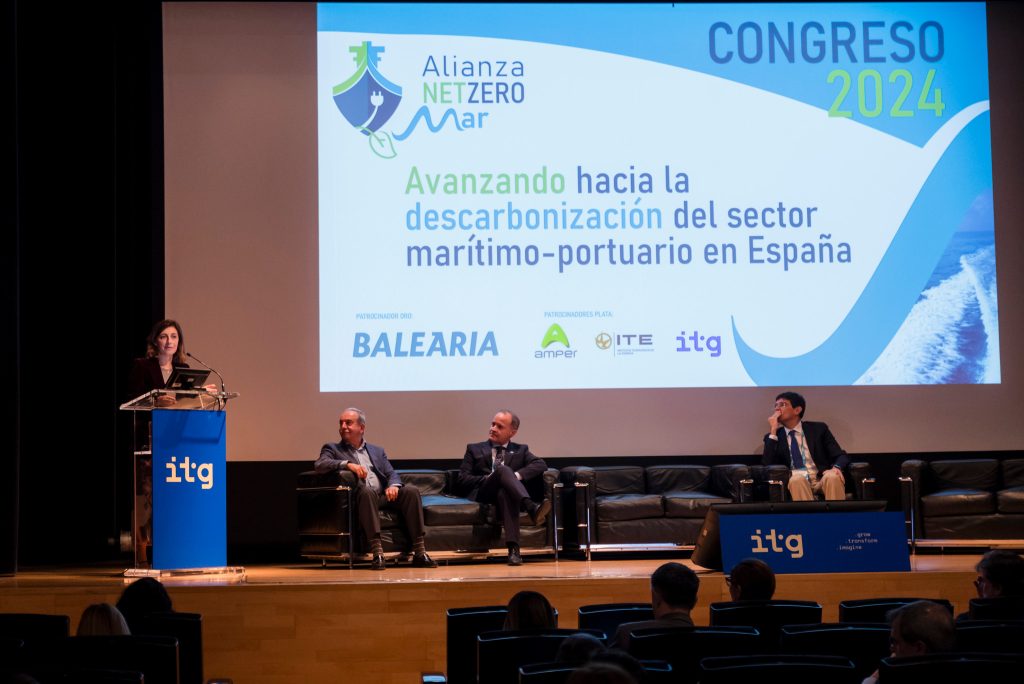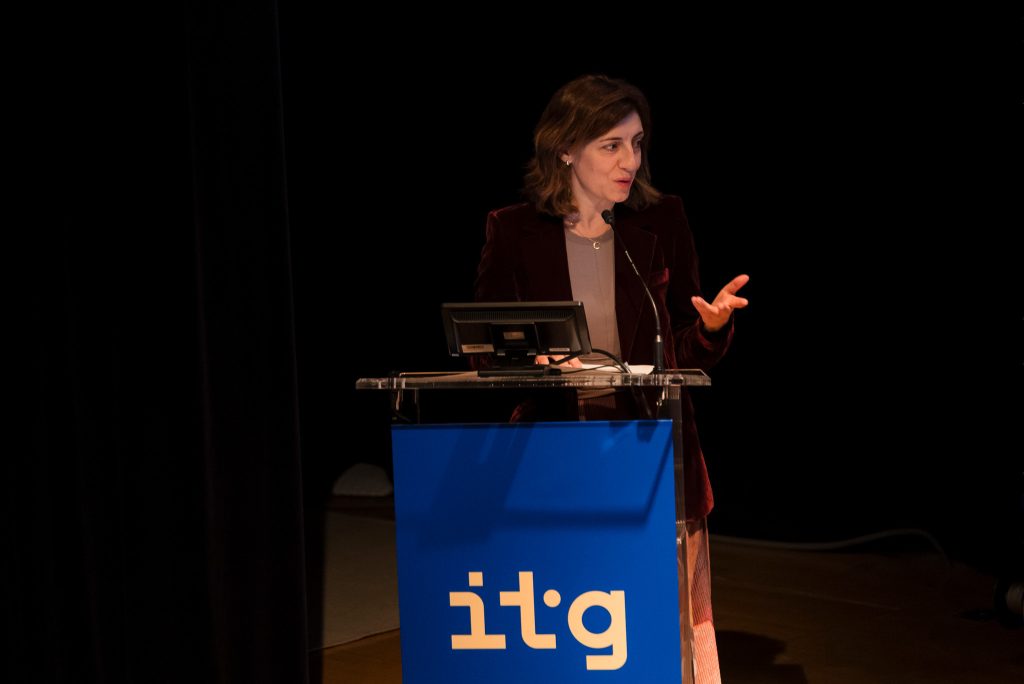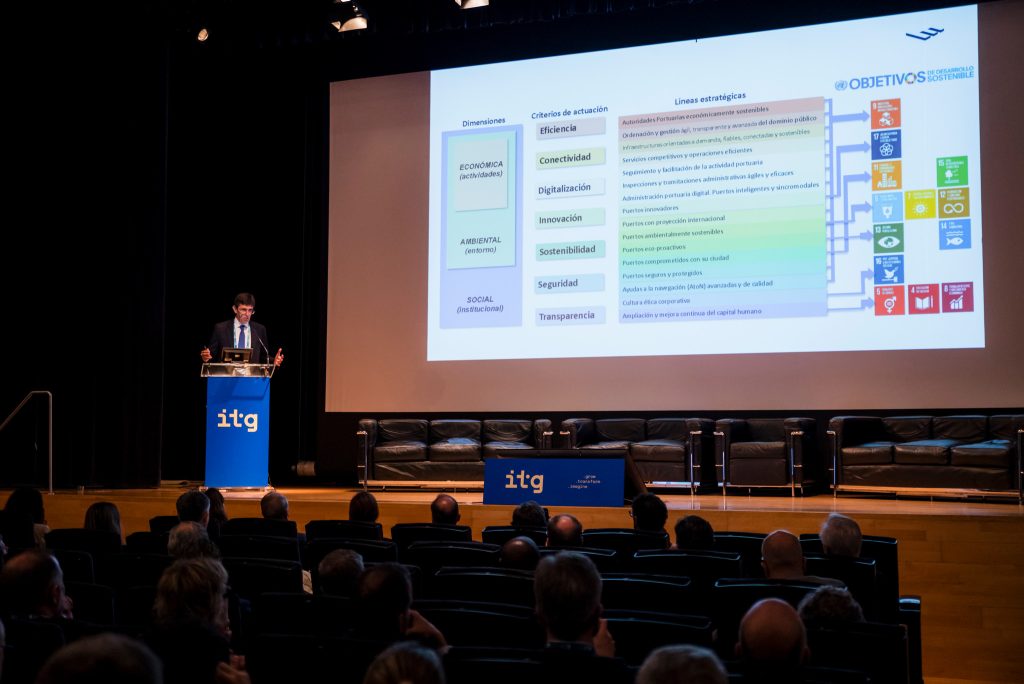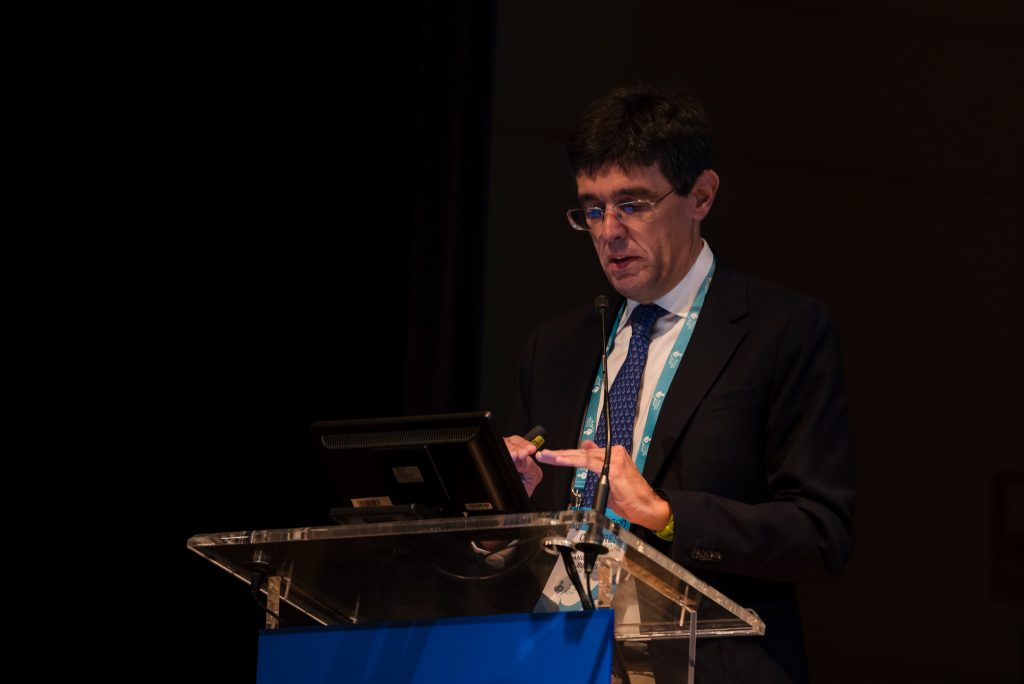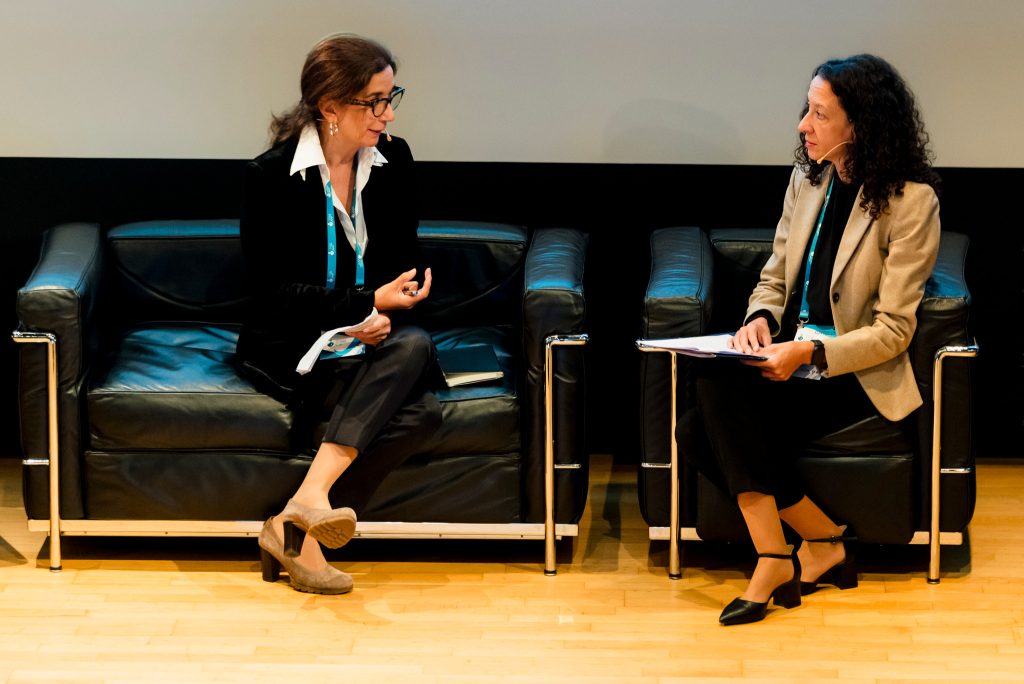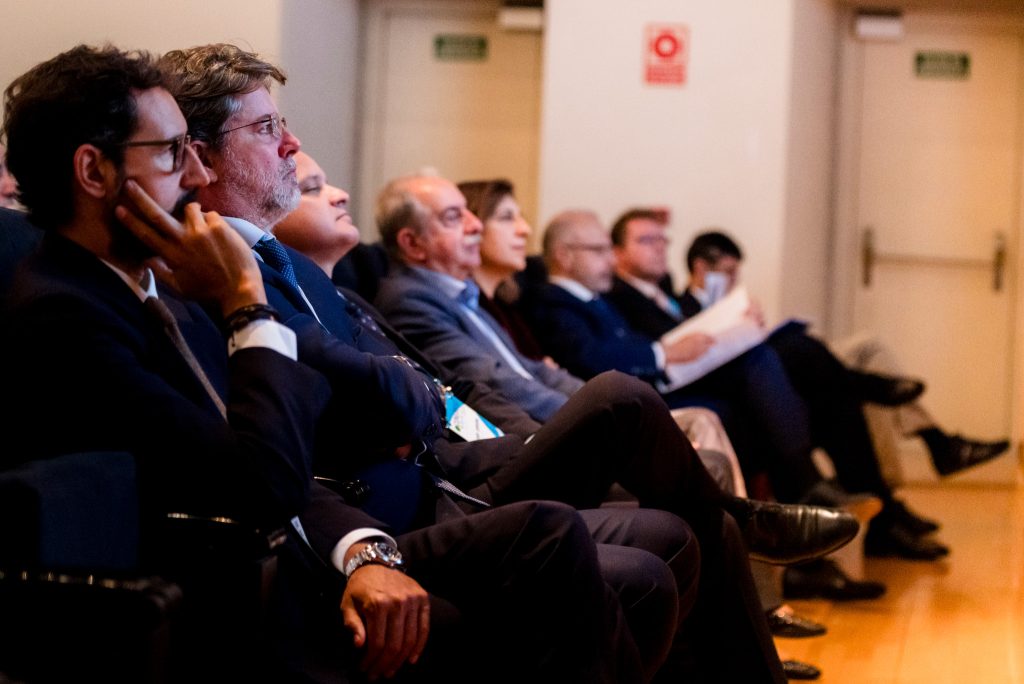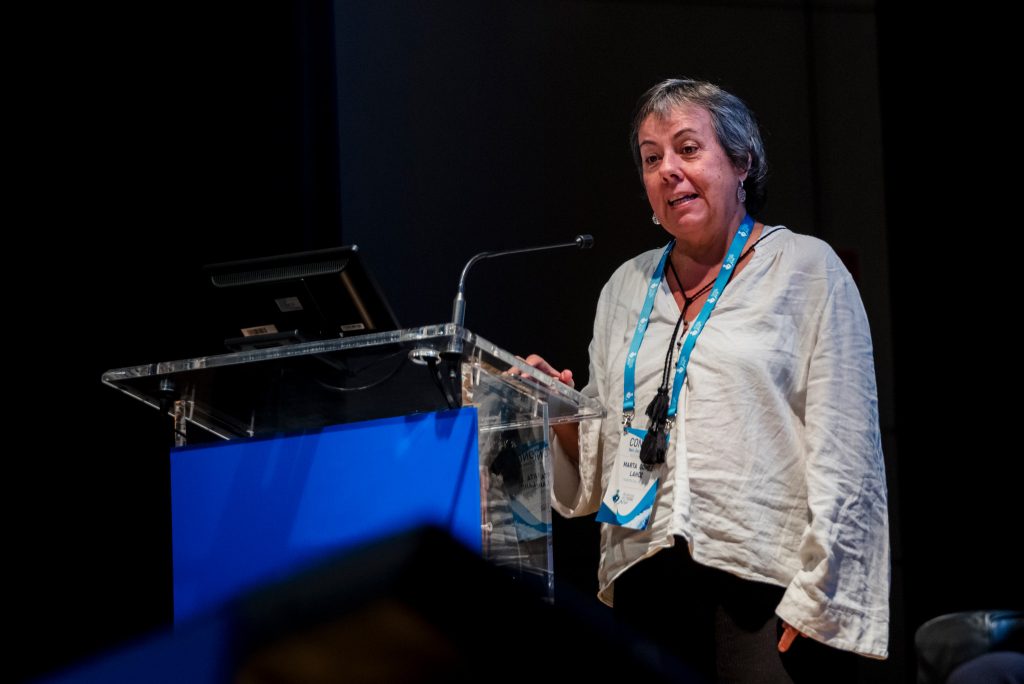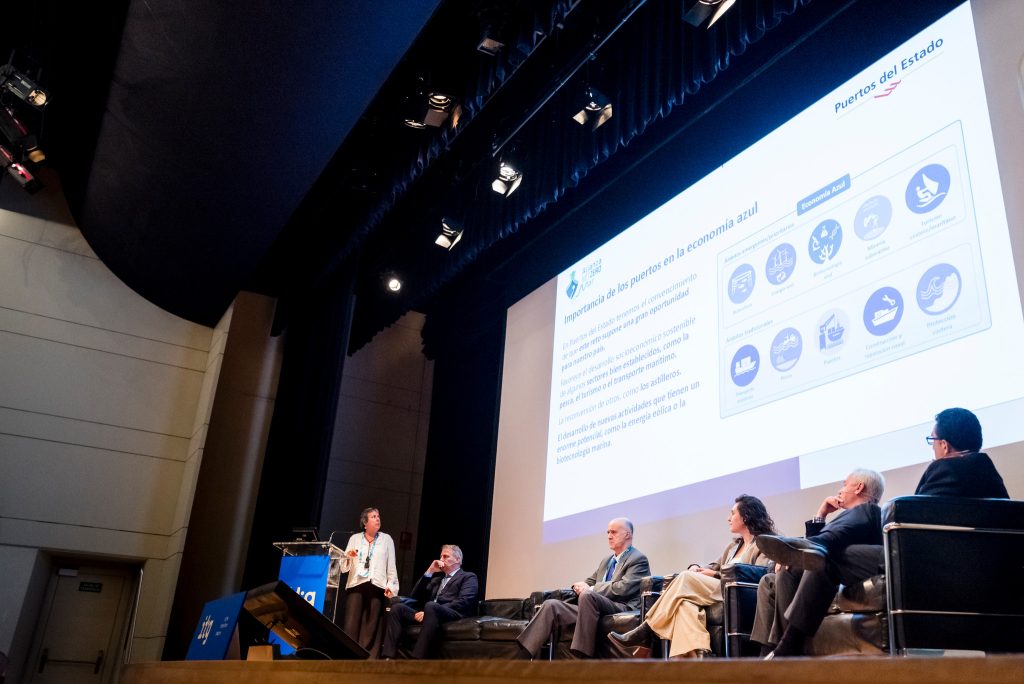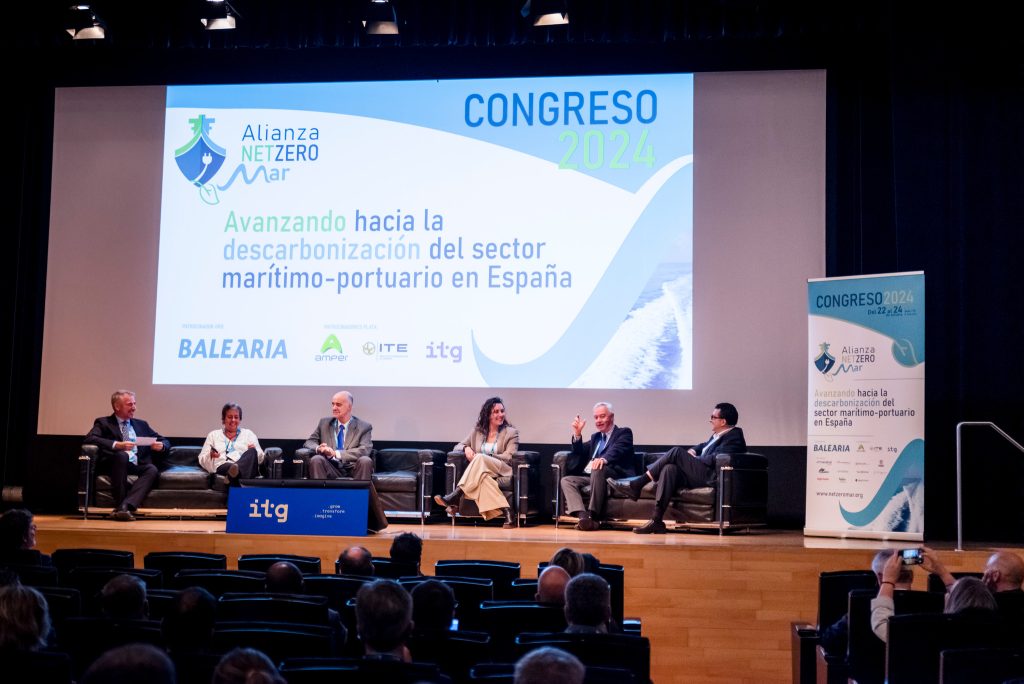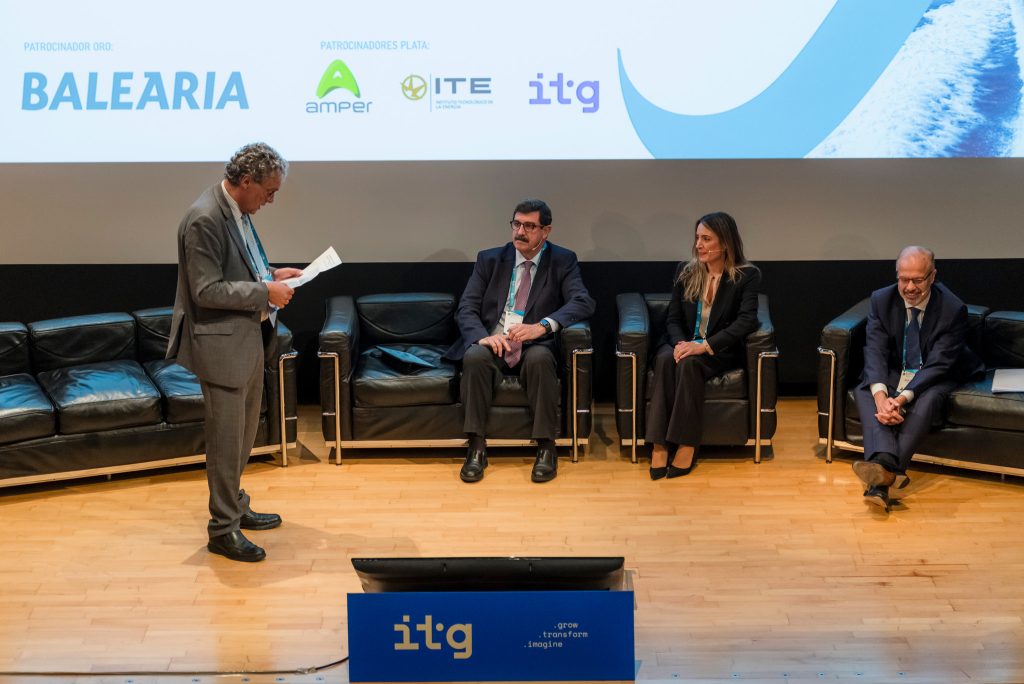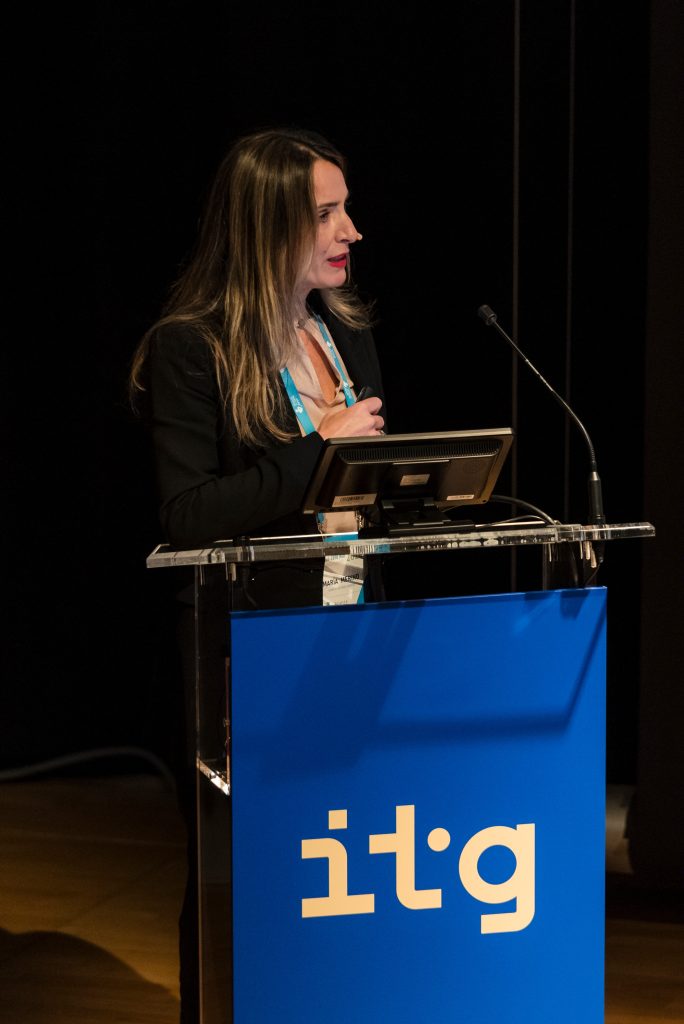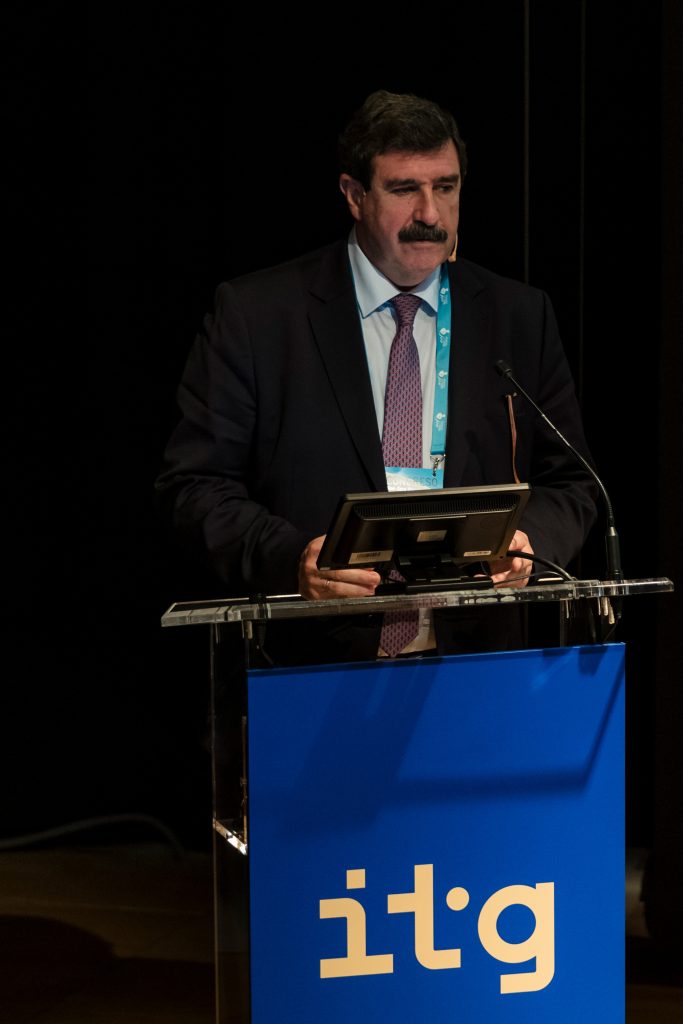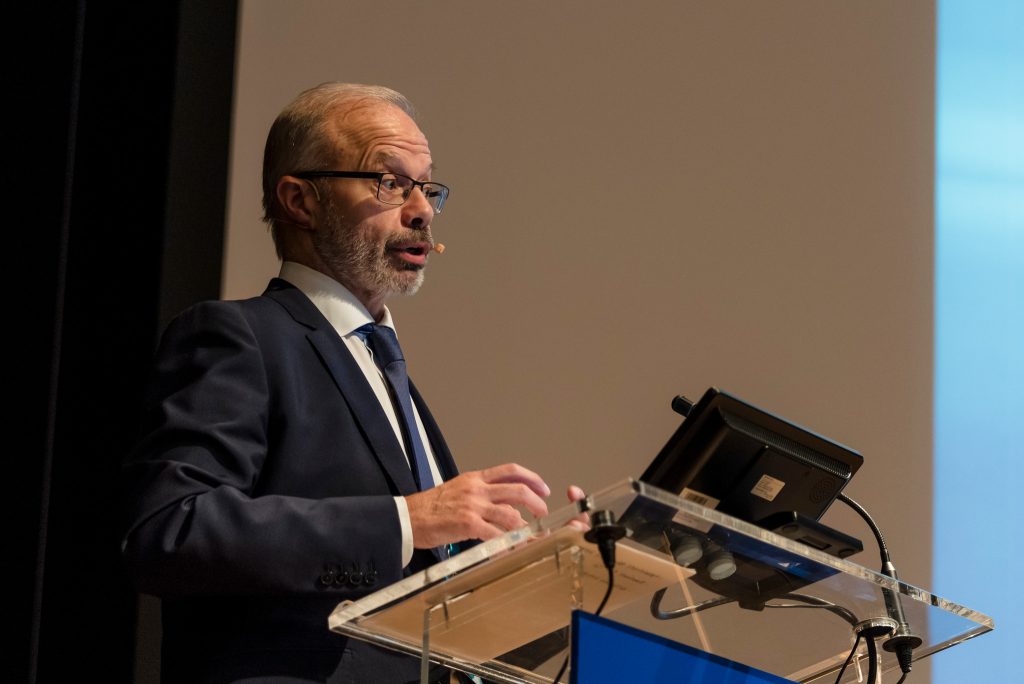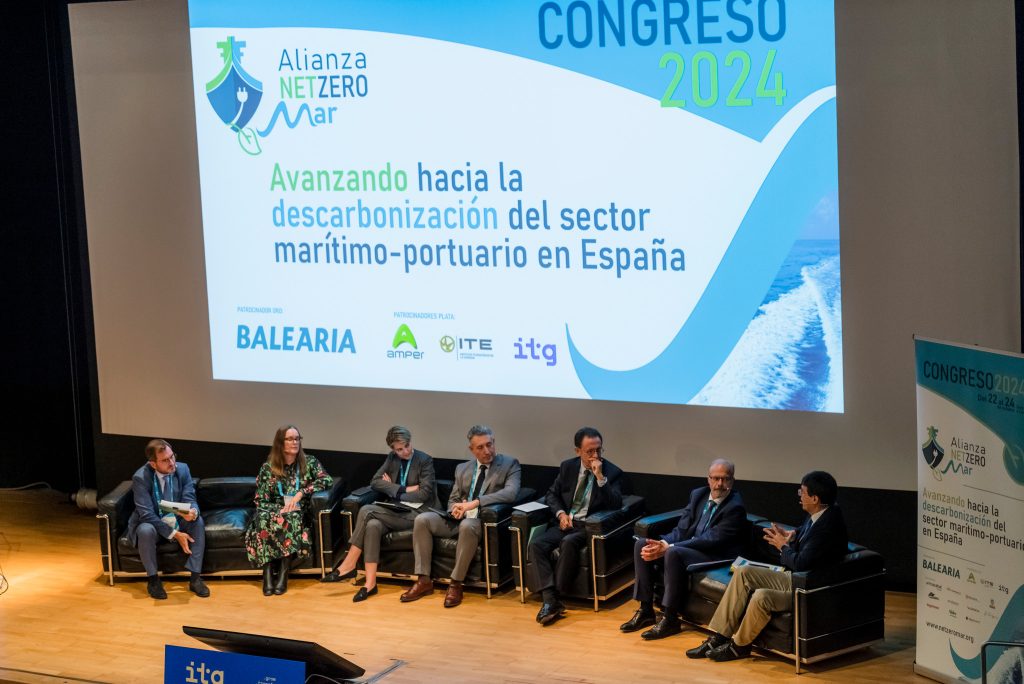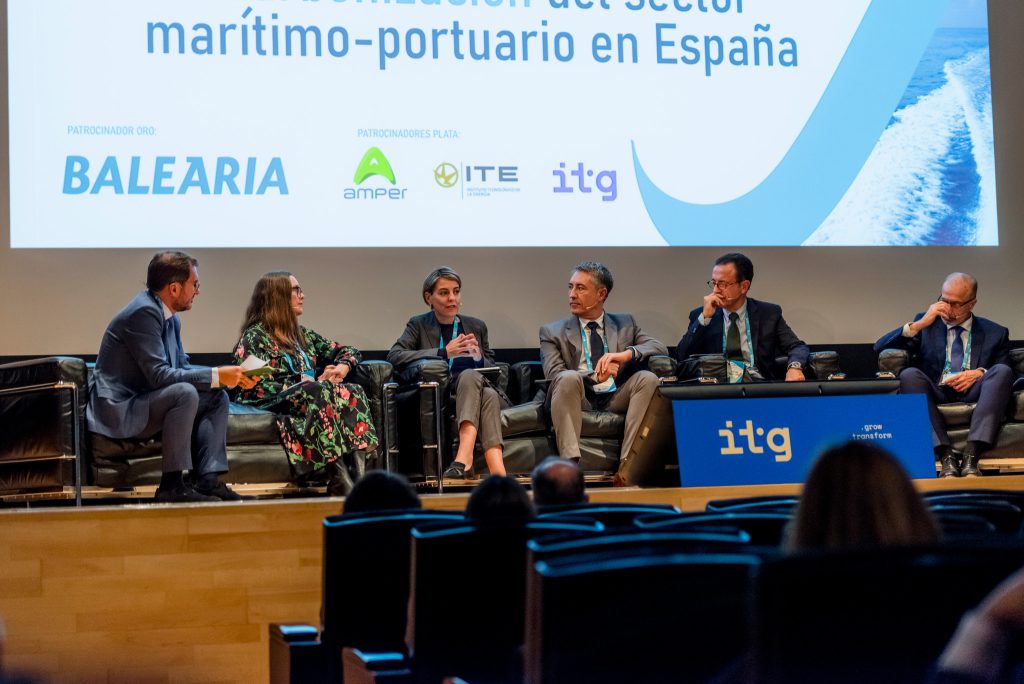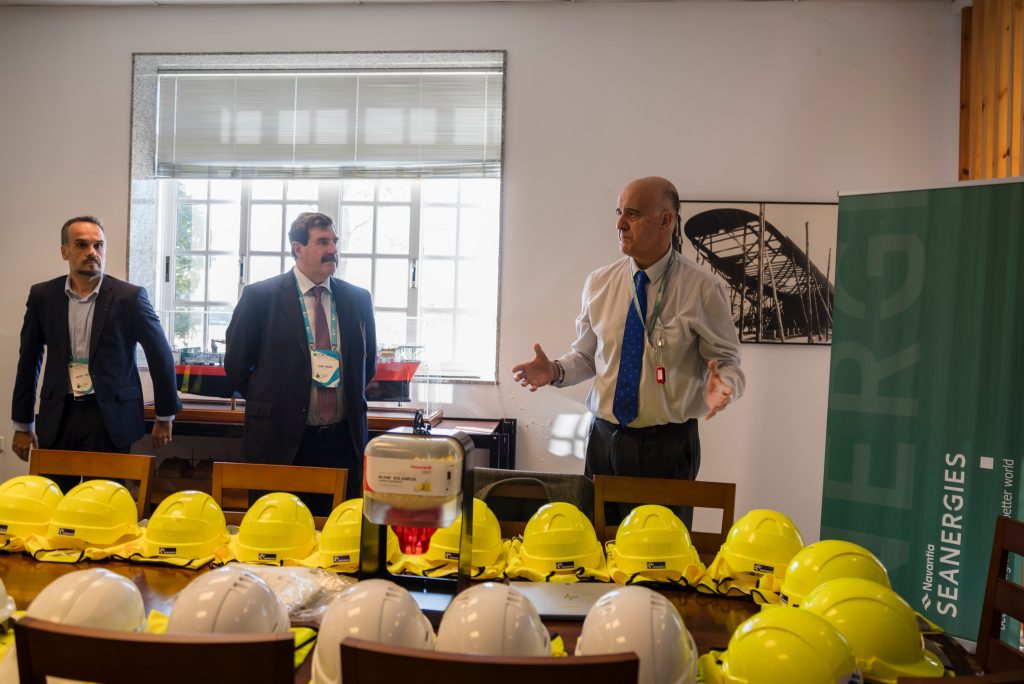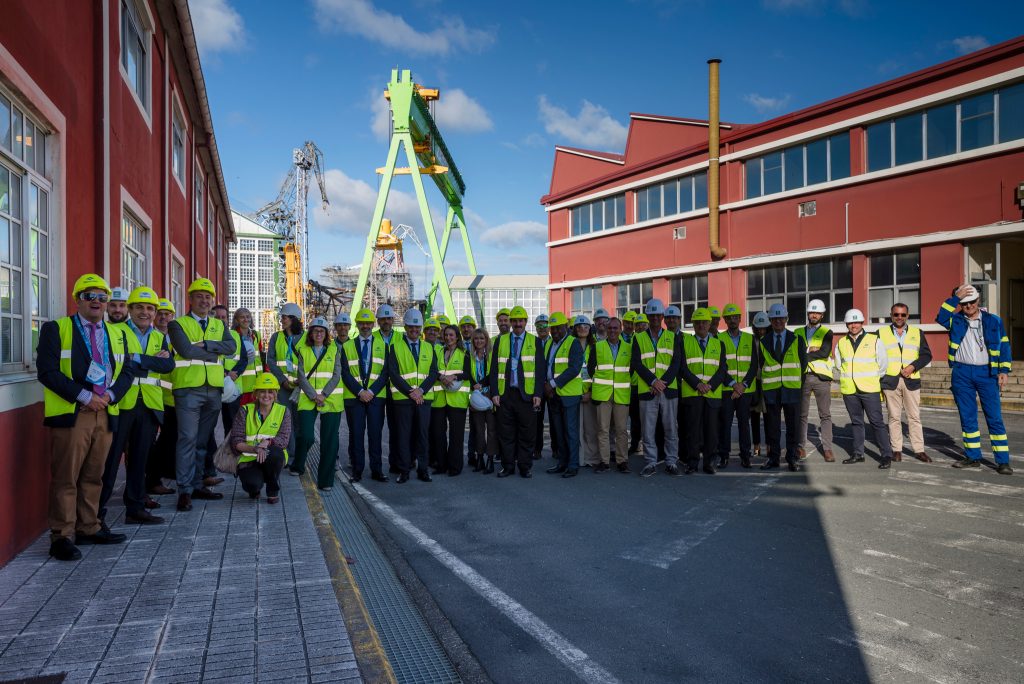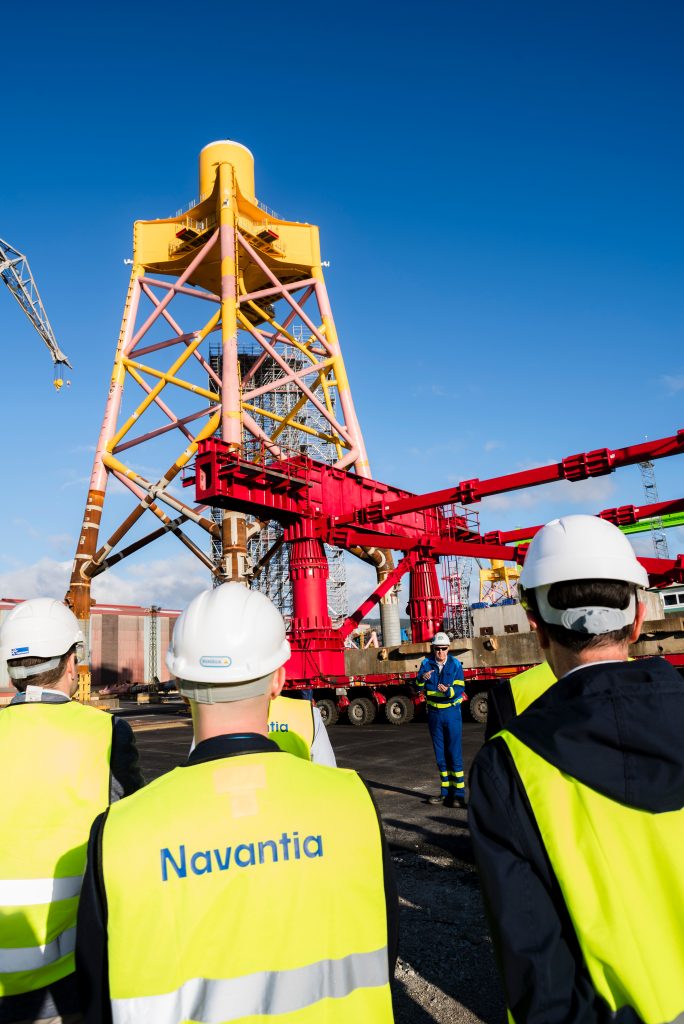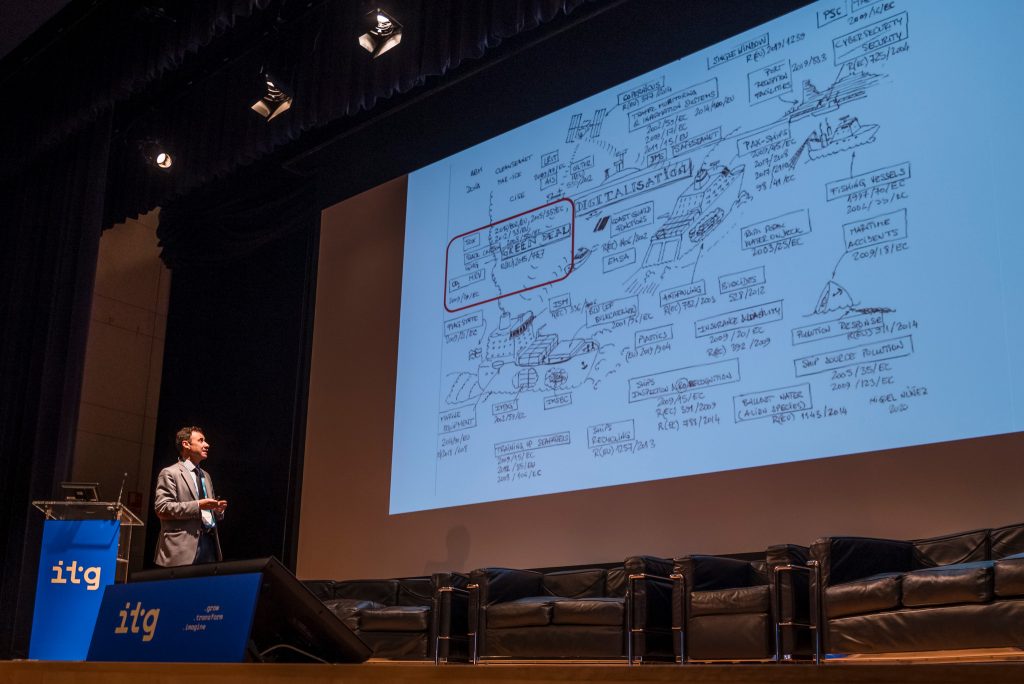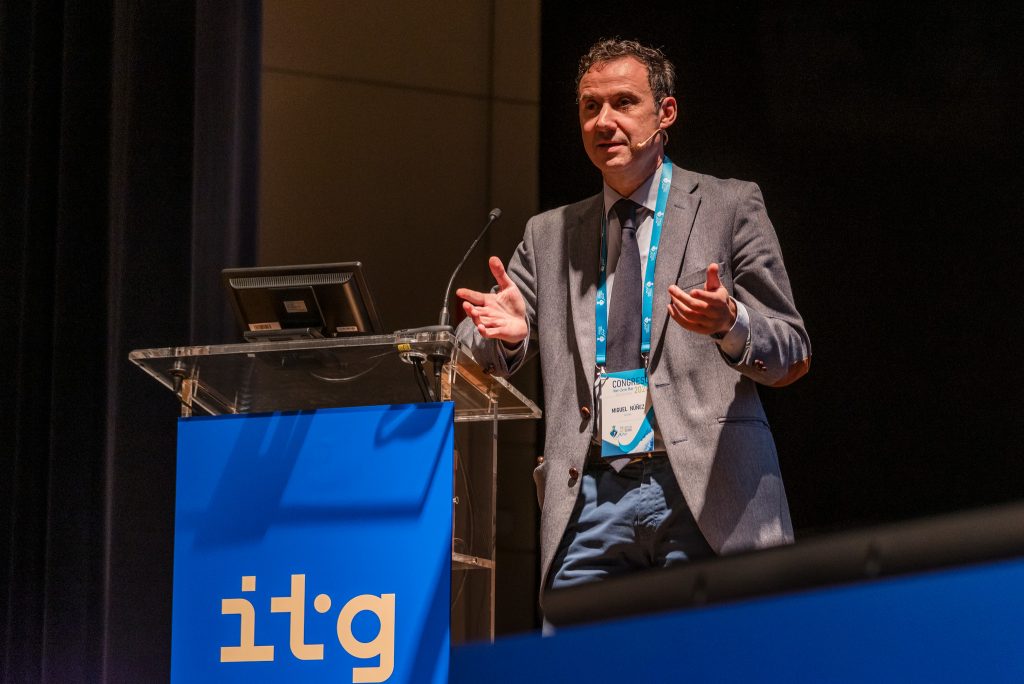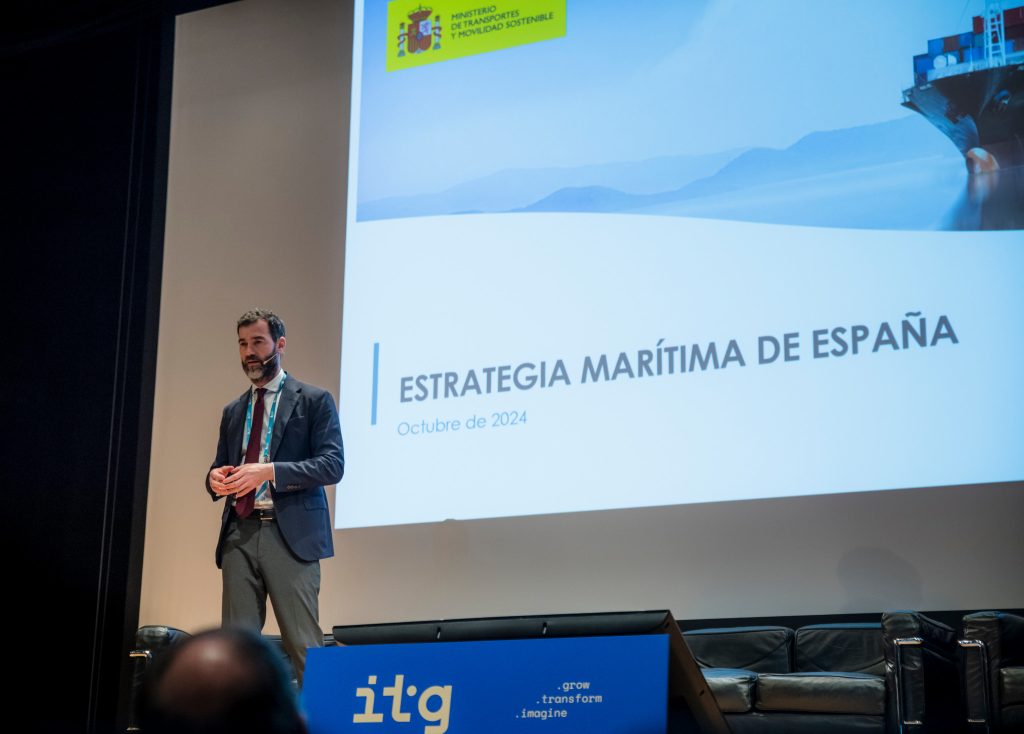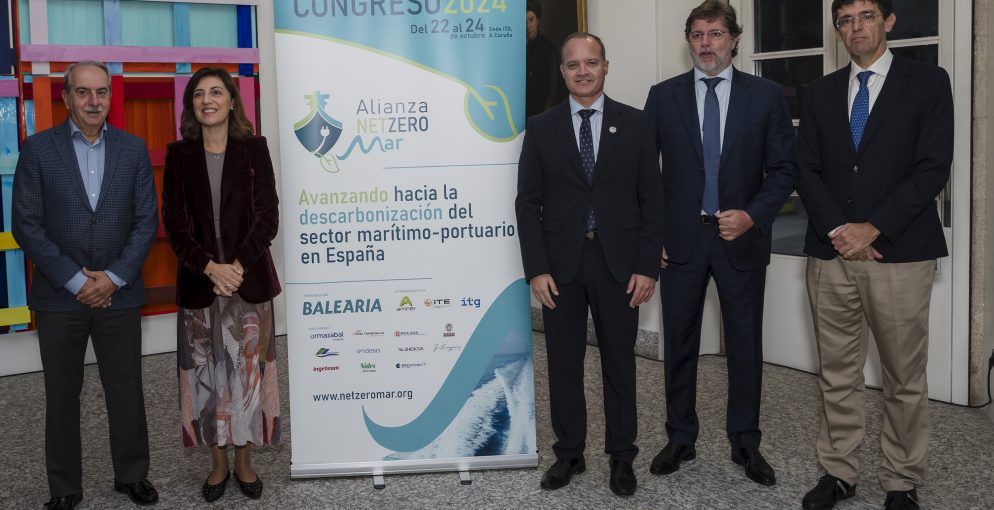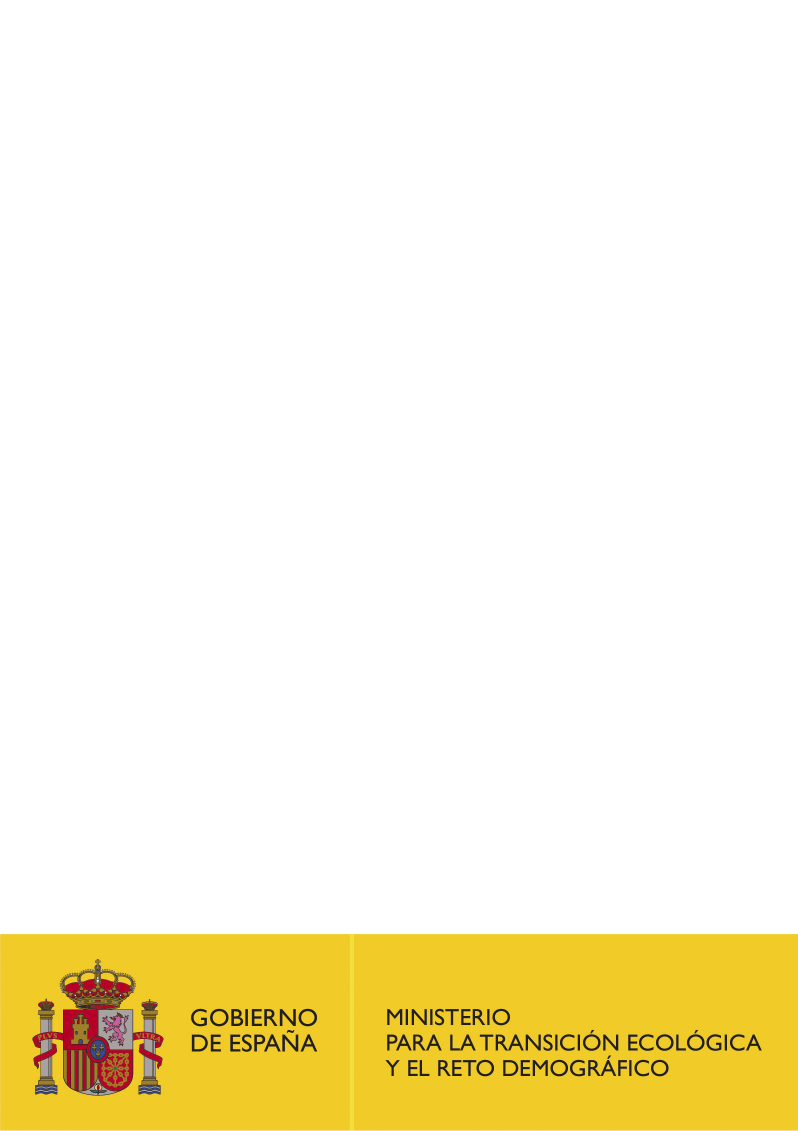- More than 150 experts have gathered at this Congress – organized by Fundación Valenciaport, in its role as technical secretariat of this initiative, in collaboration with Instituto Tecnológico de Galicia (ITG) and the Board of Directors of the Alliance.
- During the congress, the Study on electricity supply in Spanish ports was presented.
- The congress included a visit to the Navantia Fene Shipyard, the port of A Coruña and the Galaxy Lab of the ITG technology center.
Valencia, 25th October 2024. – This week took place the 2nd edition of the Net-Zero MAR Congress, an event that brought together at the headquarters of ITG, in A Coruña, more than 150 experts with the aim of advancing the decarbonization of the port and maritime transport sector in Spain.
The congress, organized by Fundación Valenciaport as Technical Secretariat of the Alliance, together with the technological center ITG and the Board of Directors of the Alliance, was inaugurated by the president of ITG, Antonio Couceiro, the president of Alianza Net-Zero MAR, Javier Cervera and the Regional Minister of Environment and Climate Change of the Xunta de Galicia, Ángeles Vázquez. The inaugural keynote address was given by the Director of Planning and Development of Puertos del Estado, Manuel Arana, who focused on the relevance of the environmental dimension in the Strategic Framework of the Port System 2030 and announced the adhesion of Puertos del Estado to Alianza Net-Zero MAR.
Over three days, the participants – professionals from companies and administrations in the maritime port sector from all over Spain – discussed the different technological solutions available in the short, medium and long term to reduce emissions in port activity and maritime transport services and had the opportunity to visit the Port of A Coruña, the facilities of Navantia – Fene and the Galaxy-Lab, ITG’s center for advanced experimentation in artificial intelligence.
The first day was attended, among other personalities, by the Director of Carbon Markets and Clean Mobility of DG CLIMA of the European Commission, Beatriz Yordi, who was interviewed by the Secretary General of the Alliance, Eva Pérez. During the interview Yordi underlined the positive effects of the Objective 55 package of measures and remarked that since 2005 the EU’s gross domestic product has grown significantly while emissions have been reduced by 47%, so decoupling economic growth from the carbon footprint is possible and is already happening.
This was followed by a session on offshore renewable energy technologies and logistical needs in the maritime-port sector, with the participation of Puertos del Estado, the Port Authorities of A Coruña and Castellón and BlueNewables. The speakers presented the great opportunity presented by the marine renewables sector for Spain and the need for public-private collaboration to position Spanish manufacturers, shipowners and ports in this market.
Another important session of the first day was dedicated to the power supply to ships, in the framework of which the first study conducted by Alianza Net-Zero MAR on power supply (OPS) in Spanish ports was presented. Among the results of the study, presented by the Ghenova team, authors of the study, the needs of 958 MVA of power for OPS in the Spanish port system were shown, as well as the investment to comply with European regulations in 2030 estimated at 804 million euros (a figure that does not include additional investment needs for adaptation of transmission and distribution networks).
After the presentation of the study on OPS, Juan Bogas, Director of Market Monitoring of OMIE, explained the evolution of the hourly profile of electricity demand and the price spread in the market, and the intervention of the head of the Third Party Services Department of REDEIA on the adaptation plans of the Spanish electricity grid for the decarbonization of the economy. These presentations were followed by a panel discussion with the participation of REDEIA, Puertos del Estado, the distributors Iberdrola and Endesa, and the associations AELEC and EOPSA. The relevance of investing in networks, because they are the backbone of the energy transition, and of the collaboration between all the actors of the energy system and the maritime-port sector was evident throughout the session.
The second day began with a double session on alternative fuels for ships in navigation in which two round tables were held. The first was attended by representatives from Bureau Veritas and DNV and was moderated by Javier Cervera, president of Alianza Net-Zero MAR. In this panel it was made clear that meeting the medium and long term decarbonization targets in the maritime transport sector will be a challenge and that compliance with the regulations will only be possible with a mix of fuels and energy efficiency solutions. The second panel, moderated by Elena Seco, general director of ANAVE, discussed specific alternative fuel projects and included the participation of Gustavo Santana, general director of the Merchant Marine, and representatives from CEPSA, Minerva Bunkering and Peninsula. Gustavo Santana underlined the relevant role that Spain is playing in the negotiations at the International Maritime Organization, a key forum for the regulation of the decarbonization of an international business such as the maritime sector. He also confirmed that the Decarbonization Plan for the Spanish Maritime Sector will include an aid program to promote the energy transition.
This was followed by a session on ship electrification which began with an interview with Ewan McMillan of Bibby Marine Ltd. conducted by Alberto Negueruela of Seaplace. The interview was followed by a panel discussion moderated by José Poblet, director of Cotenaval, with the participation of representatives from Suardiaz, Baleària, Grupo Junquera Marítima and Sym Naval. In the debate, 3 determining aspects to advance in electrification were mentioned: improving the design, collaboration between shipowner, shipyard and port, and support from the Administration.
The last session of the second day focused on digitalization for the management of energy hubs in a panel discussion moderated by Oriol Sarmiento, manager of CLUERGAL, with representatives from ITG, ITE, IKERLAN and GE VERNOVA as panelists. The natural role of ports as energy hubs and the need for an energy management system with advanced algorithms and modeling for grid optimization was evident throughout the session.
The third and final day of the congress began with a session on decarbonization of port terminals that included two presentations on decarbonization of container and general cargo and bulk terminal machinery, given by José Giménez, general secretary of ICT 4.0 and director of Port Logistics at Fundación Valenciaport; and Pat O’Leary, chief technology officer of PEMA. The session also included a panel discussion on decarbonization of terminal groups in Spain, moderated by Maruxa Heras of Global Factor and attended by representatives of MSCTV, CSPS, APMT, Bergé, Portsur and Grupo Junquera Marítima. In these sessions were clear the strong commitments of the terminal groups operating in Spain with decarbonization and how electrification is the most technologically mature way. It was made clear the need to work with the Administration so that the life of the concessions does not become a limiting factor when making decisions on the decarbonization of terminals. Likewise, greater attention was demanded to docks and general cargo and bulk terminals that are still far from being electrified.
Two extraordinary speakers from the Ministry of Transport and Sustainable Mobility were the highlight of the congress. Miguel Núñez, Spain’s permanent representative to the European Union and Minister of Transport, gave a keynote speech on international and European regulatory developments for the maritime sector; and Benito Núñez, Secretary General of Air and Maritime Transport, presented Spain’s Maritime Strategy: 2024-2050.
The congress was closed by Santiago Rodríguez, director of ITG’s Energy Division; Javier Cervera, president of Alianza Net-Zero MAR; and Eva Pérez, secretary general of Alianza Net-Zero MAR.
Exhibition and Visits Area
The event also included an exhibition area where technological solutions for decarbonization, designed by leading companies in this field, were exhibited, and a series of visits focused on the sector, such as the visit to the Port of A Coruña or the facilities of Navantia-Fene and Galaxy-Lab, ITG’s center for advanced experimentation in Artificial Intelligence.
Net-Zero MAR Alliance
At present, Alianza Net-Zero MAR has more than 60 members of relevance in the maritime port sector, including port authorities, shipping companies, classification societies, terminals, industry representatives and research entities.
*More information: https://netzeromar.org/events/congresoanual2024/
